To Solve Challenges, Californians Broadly Favor a Mix of Bold, Practical Solutions

Californians have a vision for 2050 that seems to break today’s partisan gridlock, with broad agreement on ways to improve health care, education and government efficiency, according to an innovative new poll co-produced at UC Berkeley.
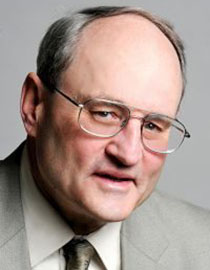
The California Considers Deliberative Poll, led by the high-level California 100 initiative, found that residents today are closely divided over whether the state is moving in the right direction. But there is agreement across partisan lines that state policy should prioritize free, universal mental health care, increased K-12 school funding, and a range of programs to assure that government works effectively to support both businesses and people in need.
And, the project found, Californians want a commitment to training new generations of democracy-literate citizens by improving civics classes for state high school students.
The project “shows that Californians are worried, upset and unsure about California’s future,” said Berkeley political scientist Henry Brady, director of research for California 100. “But they also felt more hopeful, curious and energized about the future following deliberations where they got a chance to make concrete proposals to solve California’s problems. There are many novel findings from this exercise that merit deeper exploration to help California address its looming challenges.”
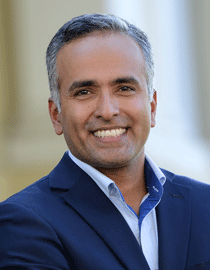
The poll presented a representative sample of over 700 Californians with policy ideas “that could transform our state’s direction in the long-term,” said Karthick Ramakrishnan, executive director of California 100. “What we found is that, in many instances, Californians from different backgrounds coalesced around common ideas seen as helping our state become more transparent, efficient and innovative.”
The poll is a project of California 100; the Deliberative Democracy Lab at Stanford University’s Center on Democracy, Development and the Rule of Law; and UC Berkeley’s Goldman School of Public Policy.
The project started with a conventional poll: A diverse cohort of state residents were surveyed on 56 policy proposals across a range of critical challenges, from housing, homelessness and education to the environment and California’s relationships with other states and nations.
But it was also an innovative exercise in grassroots democracy. After the initial survey, participants engaged in a deliberative process over several days — reading background materials and holding detailed online discussions with experts and other participants. Afterward, they were re-surveyed to see how their opinions had evolved.
The poll report, often surprising, detailed a remarkable level of agreement on tough issues:
Education:
- 80% of the respondents, in the final tally, agree California should strengthen its high school civics education and include experiences with participation, negotiation and compromise in a democracy.
- 73% said the state should increase support for K-12 education enough to move California into in the top third of student achievement scores nationwide. In one recent study, the state ranked 36th in per-pupil spending. Another study ranked California’s public schools 40th in the nation.
Health care:
- 77% said California should provide universal, free mental health care.
- 64% said California should join with like-minded states such as Oregon, Washington, Colorado and New York to create alliances on health insurance and other initiatives.
Business:
- Nearly 76% said California should develop more “one-stop shops” for business licensing and other public services.
- 73% said the state should evaluate its business regulations to make sure the benefits of those rules outweigh the costs.
- 70% favored government incentives for growing businesses that subsidize or create affordable housing within a 30-minute commute of new office and retail developments.
- Nearly 70% said companies that gather digital data on their users should be required to pay users for that data.
Agriculture and rural development:
- Nearly 74% wanted California to invest in infrastructure such as roads and broadband for rural areas.
- 64% favored financial incentives to encourage farmers to transition to drought-resistant crops.
- 64% favored conversion of large warehouses to indoor and vertical farming.
- 62% said Indigenous communities should be granted stewardship over parts of land that are already protected, such as parks and natural reserves.
- 61% said California should establish a Department of Water that would consolidate strategic planning for water use and allocate water among farming, urban, environmental and other interests.
Environment and climate:
- 84% ranked protecting the environment among the state’s most important issues.
- 68% wanted the U.S. Congress to allow California and other states to set tougher standards on clean air, clean water and climate change regulations.
- 68% said California should build large-scale desalination plants to provide clean, reliable water statewide.
- 67% agreed that plaintiffs and defendants in California Environmental Quality Act (CEQA) lawsuits should be required to identify every person or organization that contributes $1,000 or more to either side in the lawsuit.
In seeking common ground, surprises emerge
Significant majorities made clear that they broadly disagree with some ideas introduced in the California Considers Deliberative Poll process.
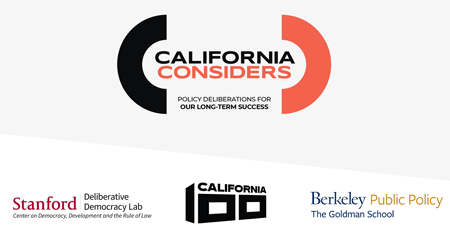
For example, by a strong margin, they rejected the idea of providing housing assistance to those under age 35 who have student debt. Half opposed policy that would require cities and counties to house the homeless. Nearly two-thirds opposed changes to California’s historic Proposition 13 to make it easier to raise property taxes. And deep partisan divides remain on issues such as single-payer health care, to which conservatives are strongly opposed.
The deliberative process did not explore in detail how the favored policies might be funded or implemented. Still, the results are striking for the broad, relatively non-partisan support they produced on issues that have frustrated policymakers and divided the public for years, if not decades.
Early in the process, voters made clear their preference for a practical approach to problem-solving.
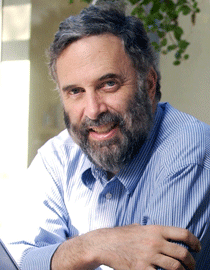
Organizers at California 100 expected “that many participants would be more open to large, transformative policy changes when considering the conditions of the state in 2050,” the California Considers report said. “However, what we found showed that, regardless of the time horizon, Californians were reluctant to endorse dramatic policy changes, and seem to lean more heavily on incremental changes over time.”
This is the first deliberative poll “to focus on the policy challenges of the further future,” said James Fishkin, director of the Stanford Deliberative Democracy Lab. “The deliberators weighed many difficult trade-offs and came up with thoughtful judgments about what needs to be done. They clearly envisioned a future for California that is more sustainable, equitable and governable — and they thought about how to get there.”
A process for guiding policy — and building trust
Of course, agreement was never unanimous, and by some measures, the participants didn’t like their political opponents much more at the end of the process than they did at the start.
Still, there were clear signals that poll and related discussions built not just deeper understanding, but respect and trust, as well.
In the initial opinion survey, nearly 63% of respondents said they respected the opinions of people who disagreed with them — but that jumped to nearly 76% at the end of the process. Some 77% said they learned a lot about people who were different from them. Fully 86% said the project was valuable, compared to only 5.5% who said it was not.
Brady, former dean of the Goldman School, noted that after the deliberative process, participants were more worried about the future, but also significantly more hopeful. “These numbers suggest that consulting Californians can increase their sense of their own efficacy, their trust in state and local government, and increase their belief that California can solve its problems,” he said.
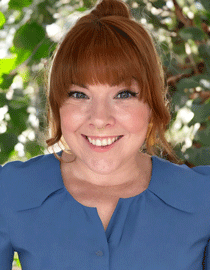
Lindsay Maple, deputy director of research for California 100, agreed that the process seemed to free some participants from political gridlock.
“When presented with a realistic vision of California in 2050, Californians truly demonstrated their commitment to building a brighter future for the state’s most vulnerable residents and its young people,” said Maple, a master’s degree graduate of Berkeley’s Goldman School.
“This exercise illustrates how transformative and thoughtful our democracy can be when everyday citizens listen and learn about different policy options meant to solve California’s most intractable challenges, especially when those individuals bring their own diverse values, backgrounds and viewpoints.”
